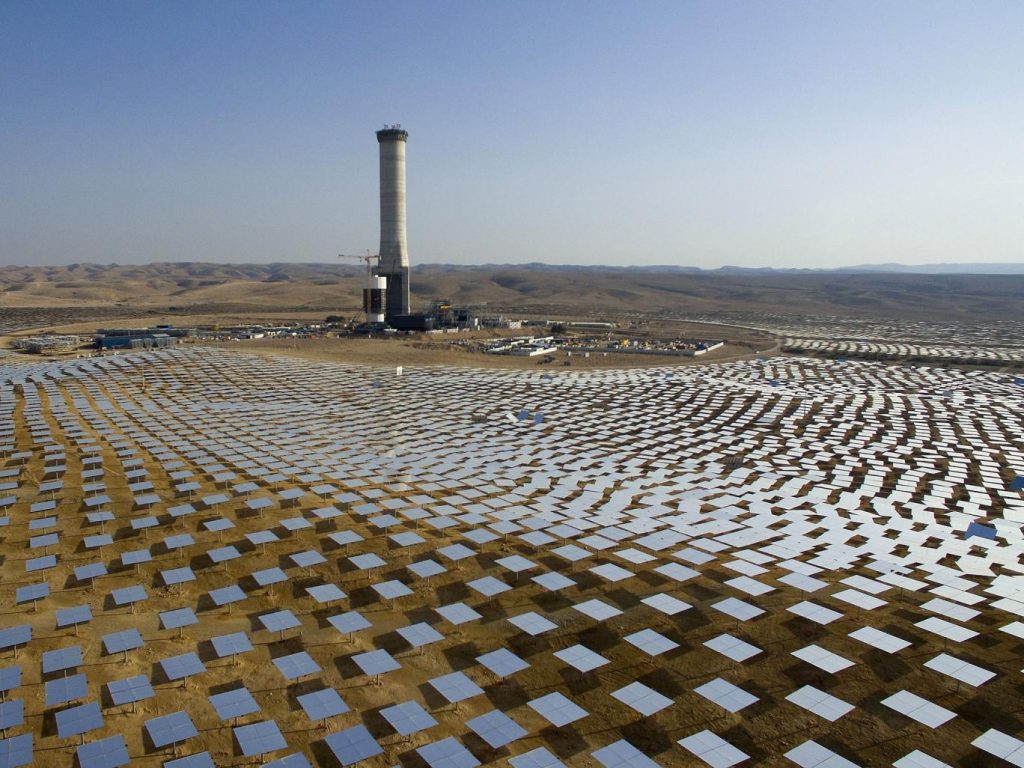Today, the idea of sustainability, renewable energy, and environmental awareness is impeccable in terms of how humans will the shape the future of the earth in their lifetime and their children’s. Israel, the birthplace of drip irrigation, is leading the way in its fight against water loss and human contributions to atmospheric carbon dioxide.
The country has faced problems from the start, mainly a lack of fresh water and arable land for agriculture. These problems, which are interconnected, drove Israel to research and invent technologies that put it at the forefront of environmental innovation.
Despite being a nation in an arid region of the globe, Israel has found a way to manage its water so well on both the national and local level that it has a surplus of water. In fact, Israel recycles 80% of its water and generates 75% of its water through desalination. To put this in perspective, Spain is in second place, but only recycles 12% of its water
One may wonder how their agriculture can be so productive in an area that lacks arable land and how they can have a surplus of water in an area that innately lacked it, and the answer to this is drip-irrigation and desalination. Drip-irrigation provides plants with a constant intake of water without putting the plant through stresses it experiences when it’s flooded with water or deprived of water. Desalination turns undrinkable saltwater into water that is safe to drink.

Through technology, the excess food and water – two vital things for a person’s survival and stability of a nation – can then be exported from Israel to nations that do not have the infrastructure to cope with their environmental conditions. This helps in improving regional and global relationships, human welfare, and local/national economies.
Agriculture can be great for a country because it provides food and jobs, but one consequence of agriculture can be an increase in deforestation to make space for farms and fields. Trees not only provide oxygen, but they serve as homes for wildlife and take carbon dioxide out of the atmosphere. Israel recognizes this, and is a leader in reforestation of its landscape, helping fulfill David Ben-Gurion’s dream of “making the desert bloom.”
These gains are vital to Israel becoming a greener nation, but there is more progress to be made. Israel recognizes this and has ambitions to further reduce its carbon output.
Historically, Israel has been a nation that has relied heavily on fossil fuels as its main power source. Today, solar only provides a small percentage of power, despite what one might assume because of the abundance of sun Israel’s exposed to. Overall, 2.5% of Israel’s energy comes from renewables, but the nation has ambitions to increase this number to 10% by 2020. This is the weakest of all of Israel’s environmental efforts, as countries like Sweden (100%), Costa Rica (99%), Germany (78%) and many others are almost exclusively powered by renewables if not completely.

Israel is carrying out multiple projects to increase its solar energy production by building solar towers in the Negev Desert. These towers are projected to generate enough electricity for 130,000 households, or, 5% of the country’s population. Instead of being a conventional solar farm, these towers can generate more electricity and take up less space compared to a solar farm generating the same amount of electricity. Thousands of mirrors reflect the sunlight (i.e. heat) onto the tower which, through its rise in temperature, creates steam in a boiler that results in the turning of a generator producing electricity.
Israel is home to some of the most innovative solar companies in the world. However, it has yet to take advantage of them due to bureaucratic policies. These companies instead take their inventions abroad and spread their environmental innovation around the world. Despite this, Israel is beginning to invest more in renewables due to the drop-in cost, enact legislation that promotes the growth of the renewable energy sector, and increase subsidies for citizens who want to put solar panels on their roof.
There is more to go for Israel to be a true powerhouse in terms of renewable energy sourcing, production, and exportation. The potential is there, and we know that by looking at its history, Israel is always happy to take a challenge and create something great to share with the world.
Contributed by CAMERA intern Jake Greenblatt.
